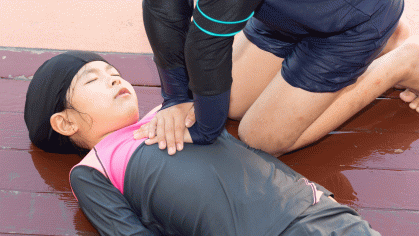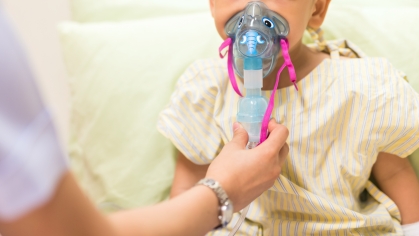Rutgers School of Nursing Receives Nearly $1 Million Federal Grant to Address New Jersey’s Staffing Shortfall

The Rutgers School of Nursing has been awarded nearly $1 million by the U.S. Department of Health and Human Services’ Health Resources and Services Administration (HRSA) to help address a statewide nursing shortage that was exacerbated during the COVID-19 pandemic.
Part of the appropriations bill funding the federal government for 2023, the $950,650 grant will be used to provide high-quality, simulated clinical learning exercises, enabling the school to increase the number of admitted students by at least 25 percent.
“This money is earmarked for expansion of our simulation programs and will mean more high-fidelity mannequins for student clinical training,” said Linda Flynn, dean of the Rutgers School of Nursing.
Flynn thanked New Jersey Congressman Donald Payne, Jr. for his efforts in securing the HRSA funding and noted that “we cannot continue to overload hospitals and outpatient clinics with students, and this money will help reduce that burden.”
To graduate, registered nursing (RN) students need to complete a clinical residency. But every year, the Rutgers School of Nursing – the largest nursing school in New Jersey – turns away hundreds of qualified candidates because of a lack of clinical rotation slots.
In the current class of about 300 first-year students, 1,040 candidates weren’t admitted because of this training bottleneck, Flynn said.
One way to expand training opportunities is by using high-fidelity clinical simulation – namely mannequins and other technologies that simulate in-hospital patient care. With the HRSA grant, Rutgers will be able to purchase enough simulators to admit between 75 and 90 additional registered nursing students annually. The grant will also allow the school to admit and train more certified registered nurse anesthetists (CRNA) in its Doctor of Nursing Practice program.
Simulators will replace about 30 percent of clinical rotation hours; the remaining 70 percent of hours will still be provided via direct, live patient care, Flynn said.
The federal funds come as health policy experts race to fill a nurse staffing shortage exacerbated by the pandemic. A survey of New Jersey hospitals by the New Jersey Hospital Association found that between 2020 and 2021, the vacancy rate for registered nurses increased from 8.2 percent to 13.4 percent. Job posting site Indeed.com lists more than 15,000 registered nurse openings in New Jersey alone.
An aging workforce is compounding these challenges. In 2021, about 7,000 registered nurses retired from New Jersey’s nursing workforce – and that number is expected to rise. New Jersey’s schools of nursing graduate fewer than 5,000 new registered nurses each year, which is affecting healthcare quality. Research shows that patient outcomes are adversely affected when patient-to-nurse ratios are too high.
“While this investment will not abruptly end the nursing shortage, it represents an important and necessary step in addressing the healthcare crisis of RN and CRNA supply and demand,” said Rep. Payne, Jr.
New Jersey isn’t unique in this crisis. The American Association of Colleges of Nursing estimates that schools of nursing throughout the U.S. turn away some 70,000 qualified applicants each year because of lack of capacity to expand admission cohorts.
While the pandemic did lead many registered nurses to leave the workforce, it encouraged more young people to consider the profession. Kyle D. Warren, senior vice dean at the Rutgers School of Nursing, said undergraduate applications to the nursing school were up 3 percent last year and are up 2 percent this year.
“This is the real tragedy of the RN shortage,” Warren said. “Young people are answering the healthcare call and we’re unable to help them realize their career dreams.”
“This grant is a start, but it’s only a start,” Flynn said. “We're going to continue to look for state and federal money to grow our program even further. This is a public health emergency, and nursing educators have an ethical and professional obligation to do as much as we can to address it.”



